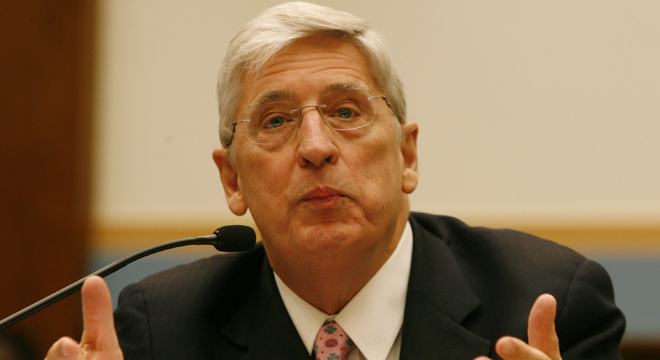The snap reactions to today’s Supreme Court arguments about the constitutionality of the health care law’s individual mandate gave reform supporters a collective case of heartburn. The conservative justices seemed broadly hostile to the law’s requirement that everyone carry health insurance. President Obama’s Solicitor General, Donald Verrilli, was widely panned by experienced court watchers for stumbling at key moments. Jeffery Toobin — a seasoned vet of the high court — called it a “train wreck” for the Obama administration.
Here’s some antacid.
Over the first two days of arguments, two of the Court’s five conservative justices have expressed sympathy for key parts of the administration’s arguments. And the administration probably only needs one of their votes to fully uphold the law.
That’s the view of former acting Clinton Solicitor General Walter Dellinger, who sat down with me and a handful of other reporters after watching the arguments. Dellinger tamped down on some initial criticism’s of his successor’s performance before the court. And, crucially, he highlighted an exchange that occurred on Monday — one we broke down here — in which Chief Justice John Roberts appeared to reject the cornerstone of the challenger’s argument.
“Yesterday the Chief Justice said that it doesn’t make much sense to say that the mandate is separate from the penalty or the tax,” Dellinger said. “He seemed yesterday to have accepted the government’s argument that there’s a real choice here. If you don’t want to have health insurance that you can pay the tax penalty.”
That could have broad legal implications. On Monday, in response to questioning from Justice Elena Kagan, Verrilli noted that under the law, a person who chooses to pay the tax penalty rather than comply with the mandate will not be considered in violation of the law. So it’s a choice — not a unilateral command. If even one of the conservative justices agrees, he could vote to uphold the law on unexpected grounds.
“Once the government has said that the mandate is not an independent requirement, it merely provides a choice of paying the tax or having insurance, and given the fact that the Chief Justice yesterday recognized that, it is quite possible that you could have four votes to uphold this under the Commerce power and two votes to uphold it under the taxing power,” Dellinger said.
This piece of the challenger’s argument didn’t come under questioning on Tuesday, leaving us only one snapshot by which to gauge Roberts’ views. But even if Roberts doesn’t bite, Dellinger said he thinks Roberts or Justice Anthony Kennedy seemed open to upholding the law as an appropriate exercise of Congress’ power to regulate interstate commerce.
Both men, Dellinger said, “asked [tough] questions of both sides.”
“The court,” he said, “understood that the alternatives being offered by the challengers were really not workable,” and that the most likely policy option if the mandate is struck is a more public system like single payer.
“I don’t think either the Chief Justice or Justice Kennedy thinks that’s a good option,” Dellinger said.
But the administration argues that if the justices reject the challenger’s key claim — that the mandate and the tax penalty are not linked — then they should err on the side of upholding the whole thing. And that may be reform supporters’ best hope.
“[I]f there is any doubt about whether the requirement is independent or whether it is simply a choice — have insurance or pay the tax — if there’s any ambiguity about that at all in the statute the Court should construe the statute in a way that upholds the statute and not construe the statute in a way that invalidates it,” Dellinger said.










